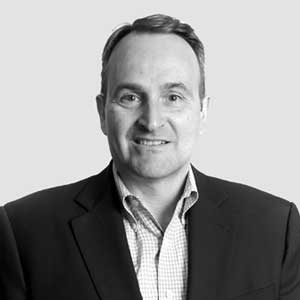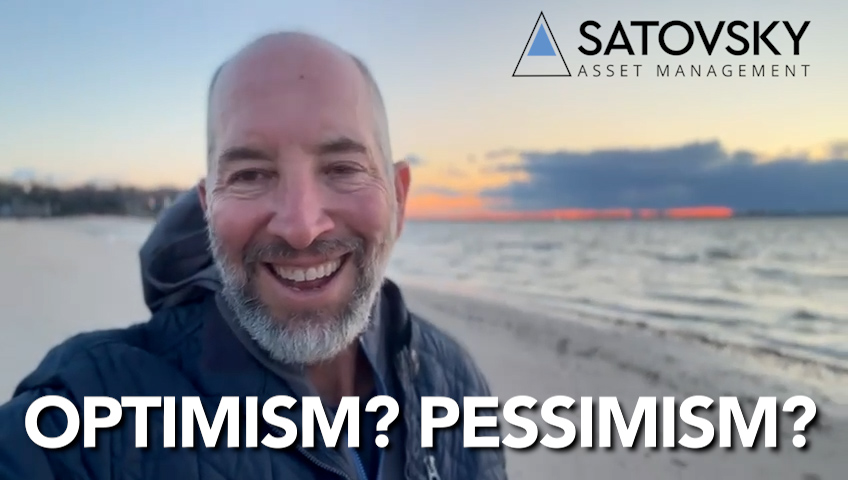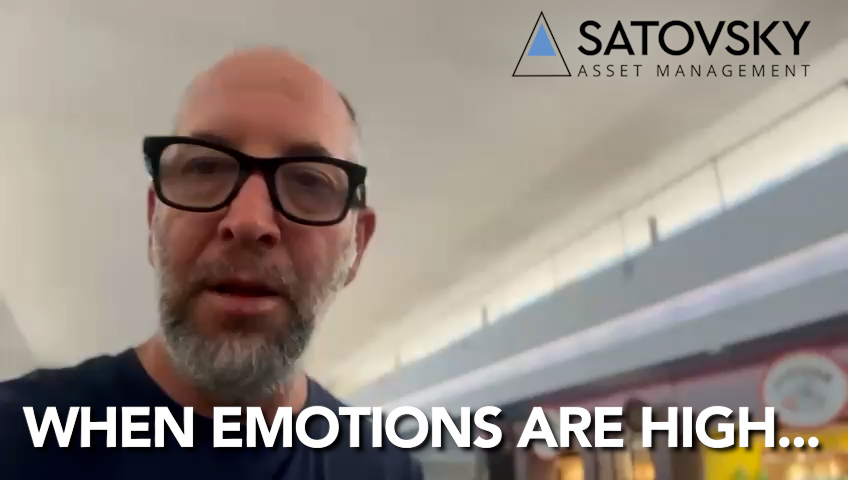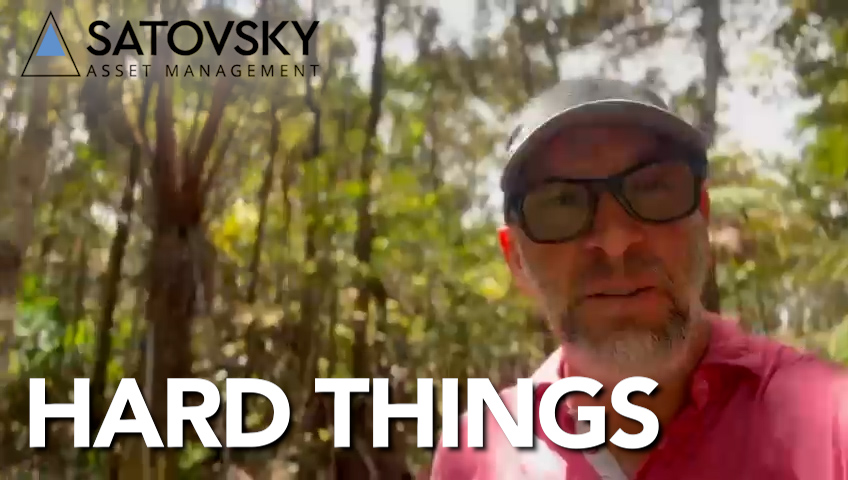I want to thank everyone who attended our “Taking Stock with SAM” webinar on March 14, where we discussed interest rates, the Russia/Ukraine conflict and inflation. We hope you found it timely and informative. If you missed the webinar, we encourage you to go to our website and watch it 1. If you have any feedback either on the webinar itself, or how frequently you’d like us to have such events, please get in touch with us.
In late March, three of us traveled to Salt Lake City to attend an investor conference hosted by Grandeur Peak Funds2. I’ve seen, and been involved in, many of these types of presentations; they almost always center on historical performance, portfolio positioning, and future outlook. This conference touched on those items as well. But the core of the whole day was on culture and values, and I want to talk about that in this letter.
Grandeur made clear how much they thought about firm culture from the moment they started the firm through the present day. In addition to having a performance-based culture, it made sure to also focus on constant personal development and improvement, and teamwork.
The details were impressive. Robert Gardiner (one of the three founders of Grandeur Peak) spent more than 20 PowerPoint slides going over how they have built the Grandeur Peak team over the last decade. One of the more impressive slides listed the reasons why, in the last decade, only 12 people left the firm. Most of those twelve left the industry3. They did it by focusing on recruiting and then retaining the right people, making sure that all employees have a monetary stake in the success of the firm.
They also focus on process. Part of the process revolves around reviewing lots of internal data, including granular performance data so that they know in which industries and countries they perform well. But they also review other unique data, such as which analysts tend to have conservative estimates and which are more optimistic, so they can adjust and equalize the stock choices.
Process also is evident in the organizational structure. Each stock pitch requires two analysts to buy into the idea, and another analyst whose job is to play devil’s advocate by poking holes in the investment thesis. Not only does every portfolio have multiple portfolio managers, but they also have guardian portfolio managers, whose job is to oversee the PMs with another layer of review.
The lunch speaker was Taylor Randall, former Dean of University of Utah Business School, who was recently named Dean of the University of Utah. Many of these types of events feature prominent politicians or investors. Why Taylor Randall? While heading the business school, he transformed the school from a below average organization to a top 40 business school, with many programs (executive MBA, online MBA, entrepreneurship) in the top 15. He did it by focusing on culture. What incentives work with high performing groups, and how can I extend that to other groups? How do I align incentives to match where we want to go? How can a leader get people on board with their vision?
Robert dug up the first memo he sent the day he started Grandeur Peak in 2011, outlining some of the core values that he wanted to build in his fledgling firm. As you can see from the following excerpts4, the focus on culture was intentional:
Maybe we’re fools, but the three of us opted against coasting along and sipping lemonade on [the] back porch at this point in our lives despite each of us being in a position to do so. Our motivation is not the financial rewards, but rather we all desire to build something special and to try to make a difference in the world…
What are we about as I think about us today on our first day?
*Enduring investment philosophy and process. Long Term Investors. Common Sense Investing… We’re going to work hard every day to have a special enduring investment philosophy. We’re going to try to be a learning organization that learns from victories and from mistakes and improves upon our discipline, philosophy, and strategy…
*Integrity. We’re all about doing what we say we do, and about being transparent about everything in our company to our clients. There is only one truth. No marketing half-truths here. There will be no burying of the evidence when we have a bad performance period. We’re all committed to integrity in our personal lives too, that would reflect well on the firm. Our profession is lived 24 hours a day in so many ways.
*Giving back. Significant portion of firm’s profits will be given to local charities, global charities, and we want to be involved in community in many other ways (arts, sports, schools, etc.)…
*Team work, friendship, and equality. No divides between research and [the] rest of the firm. No divides between PM’s and analysts. No divides between old and young generation[s]. We’re all here to help each other any way we can. Every person that walks through the door of this company, we want to be fairly treated. Every person that comes through here, even if it doesn’t work out to stay, we will help further their career and treat them fairly in compensation and in advancement. We always want to lift up those that have fallen down in our company. Foremost, we want to build 20 and 30 and 40 year careers for people here at Grandeur…
Some of you may ask why I spent so much time talking about this in our quarterly letter. There are two main reasons. First, as some of you know, Robert Gardiner is taking a sabbatical from Grandeur to oversee a mission for the LDS church. We don’t know what will happen while he’s gone, and so we will continue to monitor the funds closely, but we were impressed with the team, and more importantly the culture, and believe that performance will ultimately endure while he is away.
Second, we at SAM also think quite a bit about our culture. Personal improvement—mentally, physically, and spiritually (I’m sure you’ve all heard Jonathan speak about wisdom, wealth and wellness!)—are core to who we are. Whenever we are looking to bring someone new onto the team, integrity comes first. We always ask how we can structure ourselves to better align with our clients. Ultimately, if we can partner with like-minded firms and co-opt some of the things that will work in our culture, we will both be better off for it. Grandeur is one of those firms. That’s also why some of us are heading to Berkshire’s annual conference this coming weekend. Let us know if you will be there.
And if we can continue to foster learning, growth and fun, both we and you, our clients, will be better off for it. As Robert said in his closing remarks, he still intends to invest until he’s Charlie Munger or Warren Buffett’s age5. Amen to that!
Like prior letters, here are a few interesting stories from the quarter. Interfax Ukraine published an article6 on March 1 saying,
Ukraine’s National Agency for the Protection against Corruption (NAPC) has declared that captured Russian tanks and other equipment are not subject to declaration.
“Have you captured a Russian tank or armored personnel carrier and are worried about how to declare it? Keep calm and continue to defend the Motherland! There is no need to declare the captured Russian tanks and other equipment…”
I guess that wouldn’t have been my first thought if I captured an invading army’s tank but good for all of us to know, just in case. Tax policy should incentivize behavior the government wants!
The meme stock craze hasn’t ended yet. During the quarter, AMC Entertainment, whose core business is running movie theaters, bought a large stake in Hycroft, which owns a gold mine. Not just any gold mine, but one that already went bankrupt once in 2015, and laid off half its workers last November. What can AMC add to Hycroft? Perhaps some know-how in getting meme investors to bid up the stock so it can sell more shares at higher prices, which is exactly what happened a couple of weeks later. So far AMC is having the last laugh, as the Hycroft is up close to 100% in the month since their investment.
Before I close this letter, I have two other requests. First, SAM will be sending out a client survey through Dimensional Fund Advisors shortly. Please look out for it and fill it out as candidly as possible; all responses are completely anonymous. We would love to get your feedback.
Second, in the last few years, there has been increased demand and activity in private market transactions. These investments are generally illiquid, have fewer guardrails and less public information, and have a much higher likelihood of losses compared the public market investments. From time to time, we come across non-public companies or funds that invest in private companies which are seeking outside investors. Please let us know if you are interested in SAM exploring creating a fund for private investments.
In a speech in 1963, the great investment analyst Benjamin Graham said: “In my nearly 50 years of experience in Wall Street I’ve found that I know less and less about what the stock market is going to do, but I know more and more about what investors ought to do.”7 What we continually try to do is to control what we can, and put us in a position so we don’t have to fret over things we can’t control. Thanks for your continued partnership with us.
Avi and the SAM team




